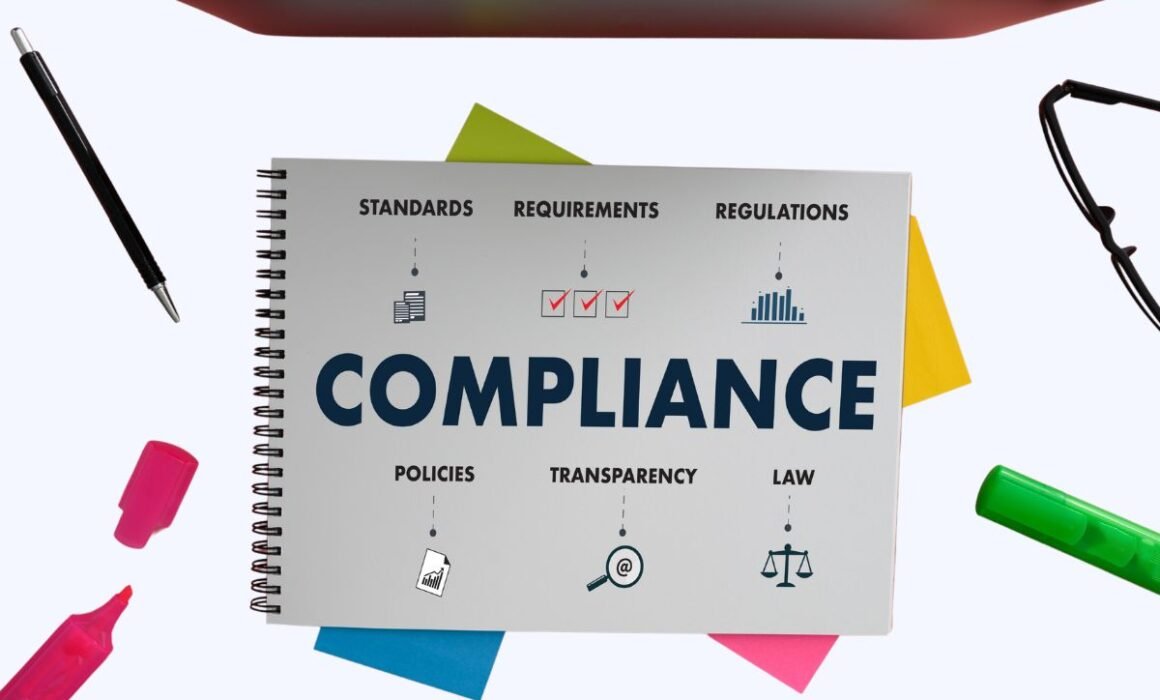What Is A Product Portfolio Manager?
Product portfolio manager is a role that is becoming more valuable these days, especially for companies handling multiple product lines. For this reason, product portfolio management experts continue to be in demand. Their position takes on broad responsibilities, requiring invaluable skills like innovation and planning in driving products to maximum market impact.
Table of Contents
- What is a product portfolio manager?
- Duties and Responsibilities of a Product Portfolio Manager:
- What are the skills needed to be a product portfolio manager?
- Product portfolio manager vs product manager: what’s the difference?
- Why is a product portfolio manager important?
- Why do companies that adopt product portfolio management become successful?
- What type of companies hire product portfolio managers?
- Final thoughts
- Machine Learning In Finance: 12 Essential Applications
- How To Create Interactive Compliance Training For Bank Employees
- How Fintech Apps Are Using Gamification To Increase User Engagement
- Top Gamification Companies for Employee & Customer Engagement
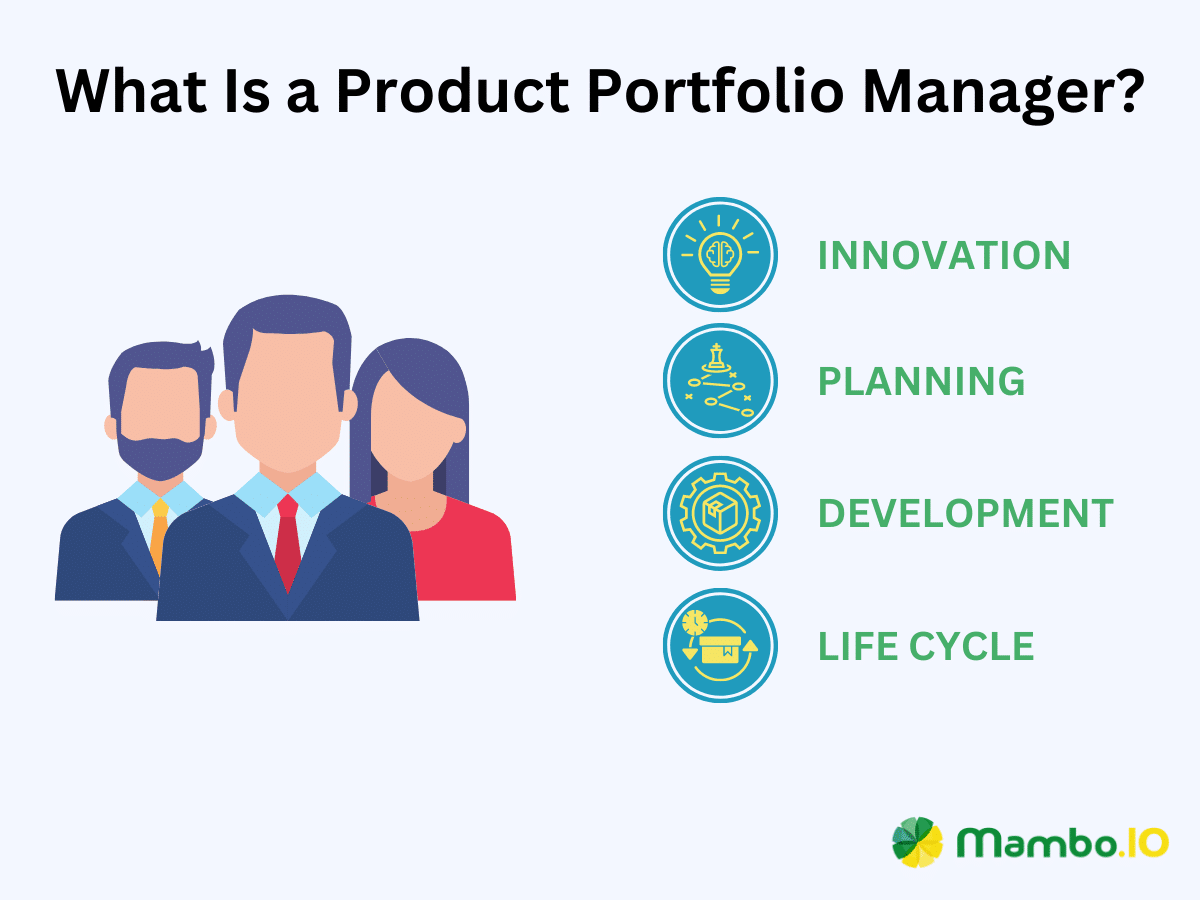
With product portfolio managers, organisations can position themselves for long-term success in a dynamic and competitive business landscape.
What is a product portfolio manager?
A product portfolio manager is someone responsible for overseeing a company’s entire set of products. This person productively manages the product mix and ensures the organisation’s product portfolio aligns with its business strategy. Doing so ensures all the individual offerings lead to optimal revenue generation and profitability along the customer journey stages.
This position requires a lot of management and strategic planning. Those who take up this mantle supervise the company’s product managers and their products. They would also tackle other essential responsibilities, such as resource allocation, spotting areas of improvement, and more. Product management professionals typically assume this role.
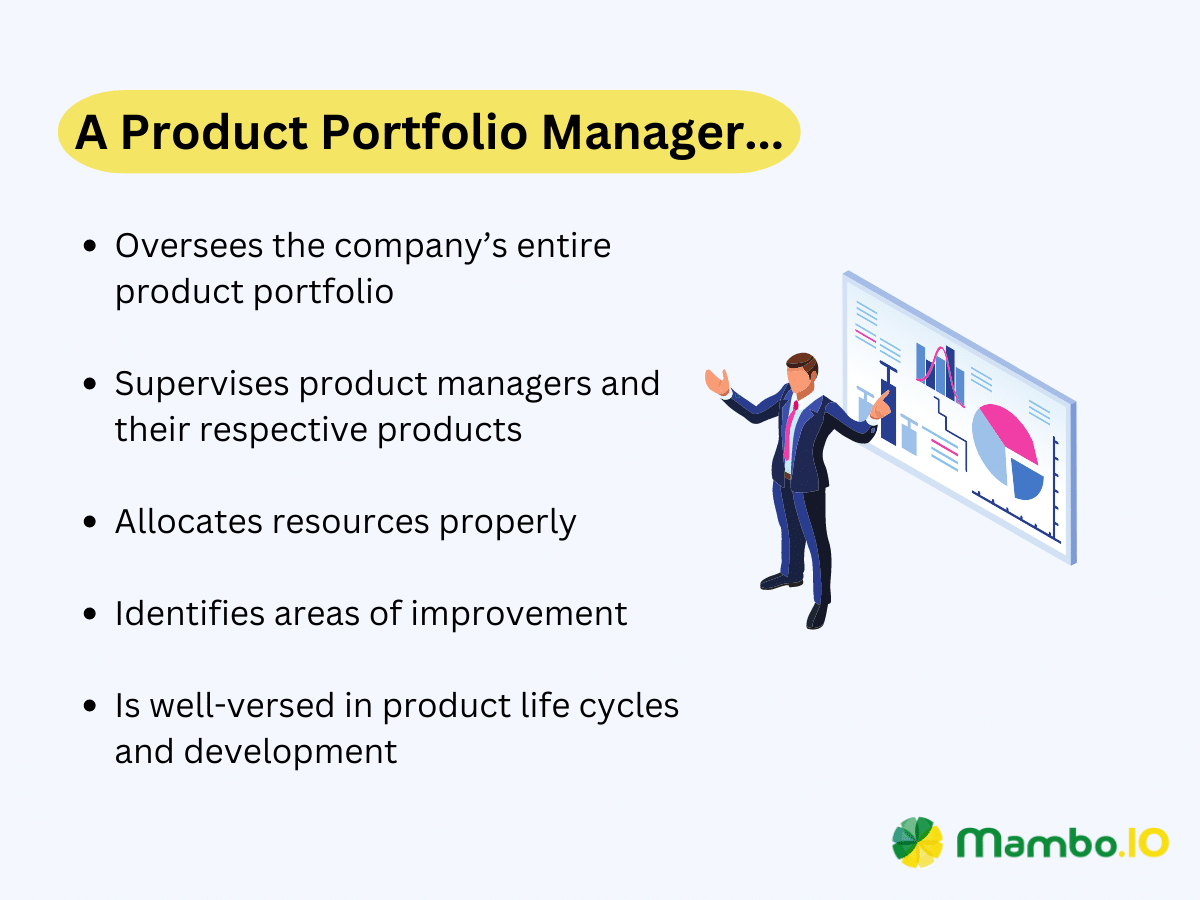
Ultimately, product portfolio managers are in charge of the business’ portfolio of products, its success, and the inter-relationships involved. Their job is to bring a broader solution story to the table. Their role entails bringing a broader solution story to the table, covering the combined value proposition of all products in a well-balanced portfolio.
Duties and Responsibilities of a Product Portfolio Manager:
Product portfolio management is a complex job requiring someone who can deal with such multi-faceted ordeals. Therefore, product portfolio managers must understand the company’s products, strategies, market dynamics, and more. Below are some of their fundamental duties and responsibilities.
#1. Conducting portfolio analysis
It’s natural for any un-optimised portfolios to have flaws and imperfections. Fixing this issue is one of many jobs of a product portfolio manager. They must identify the strengths, weaknesses, and areas of improvement of the company’s existing product mix. Through careful analysis, they can assess the performance of each product, ensure it’s viable to the market, and align it with the company’s goals.
#2. Developing and implementing product strategies
They will then use product portfolio analysis to formulate actionable strategies to optimise their product sets. These plans involve preparing decisions around the product, particularly its development, enhancement, or retirement. Such a task often includes allocating the company’s resources to the right places and investing in profitable opportunities.
#3. Monitoring market trends and competition
Successful product portfolio managers are attuned to the changes in market trends, customer preferences, and their industry’s competitive landscape. This level of attunement is possible thanks to their efforts to gather market intelligence and analyse their competitors. More importantly, they have eagle eyes when identifying emerging opportunities or threats that may impact the product portfolio.
#4. Collaborating with cross-functional teams
Product portfolio managers must collaborate with cross-functional teams like anyone in the product manager career path. They work closely with product managers and other stakeholders to ensure everyone is on track with the product vision. Additionally, they gather essential feedback from various teams and incorporate valuable insights into their product portfolio management decisions.
What are the skills needed to be a product portfolio manager?
Their objective is not exclusive to handling the company’s product sets. Perhaps one of the most important tasks they have to do is to bring winning products to the market. If they have the right skill set, the tactics and strategies they’ve employed can lead to desirable outcomes.
Here are some of the crucial skills every product portfolio manager must have.
- Impeccable communication skills: Product portfolio managers are technical leaders that don’t have formal authority over development teams. They must have excellent communication skills if they want to relay information to the stakeholders.
- Outstanding listening skills: Listening is as critical as speaking, so they must be receptive to all incoming feedback. They must be active listeners who effectively gather input from their team members, customers, and other stakeholders.
- Strategic planning: They are good strategic planners who can ensure the product aligns with the overall business objectives. They are expected to set clear goals, define target markets, understand their customers, and identify opportunities for product growth.
- Business acumen: Those with business acumen can steer their product mix toward opportune settings. With a solid grasp of the business’s financial health, they can make data-driven decisions and optimise their portfolio’s profitability.
- Market awareness: They must know the market’s movements and can proactively adjust their portfolios when needed. Because of this, they must constantly monitor the market landscape for any changes that can impact the business.
- Project management: Management is at the core of product portfolio management. Therefore, they must be experts in project management. They’ll oversee multiple projects within the portfolio, ensuring each is executed efficiently and promptly.
- Analytical skills: Lastly, they must be good with numbers and problem-solving. Their work involves interpreting data, performing market research, and making informed decisions. Additionally, they should be proficient in gathering relevant data for careful analysis.
Product portfolio manager vs product manager: what’s the difference?
Most professionals who enter the product management scene are ambitious people. That’s why it’s uncommon for product managers to become product portfolio managers eventually. What separates one from the other? It’s simple: mindset, operations, and strategy.
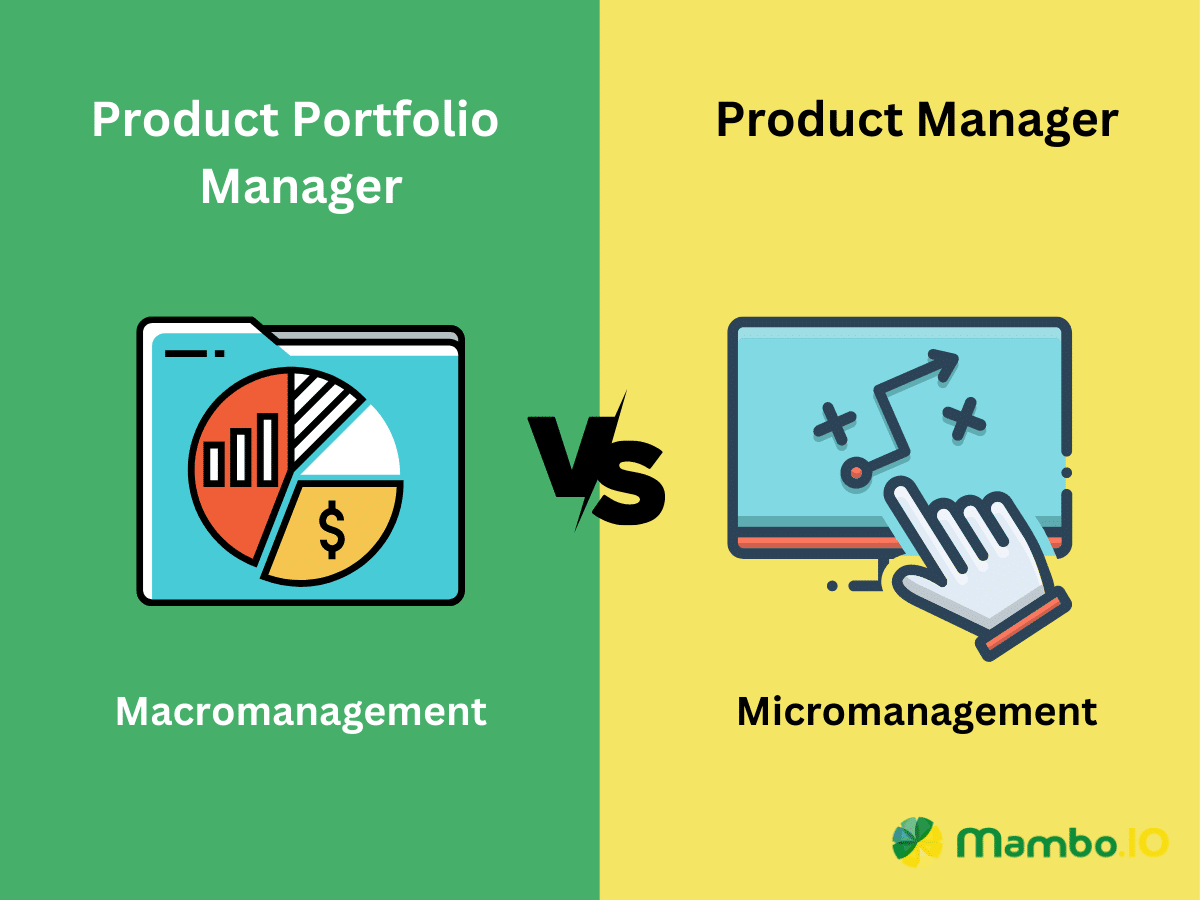
Let’s review some differences between a product portfolio manager and a product manager.
Product Portfolio Manager
Product portfolio managers look at the bigger picture and adopt a holistic approach to product portfolio management. They consider the portfolio a collection of successful solutions that can contribute to the company’s overall strategy and success. With a macro approach, they can bridge the gap between execution and three critical things: objectives, products, and resources.
Product Manager
Product managers, on the other hand, have more of a micro approach towards their roles. They focus on product features, functionality, and market positioning. Because of this, you can typically find them closely working with various teams to bring the product to market successfully.
Here are some noteworthy differences between a product portfolio manager and a product manager:
Product portfolio manager
- Focuses on the overall product portfolio management strategy and direction
- Balances the portfolio by assessing risk, return, and market trends.
- Monitors the performance and success of the entire product portfolio
- Manages product managers and product portfolio
Product Manager
- Concentrates on individual products or feature
- Defines and executes the product roadmap
- Collaborate with cross-functional teams to develop solutions
- Gathers and analyses customer feedback for product improvements
Why is a product portfolio manager important?
The more a company succeeds with their business objectives, the more it’ll need someone to handle its multiple product lines. This leader must be perceptive of the bigger picture and have the skills to execute any necessary tactics and strategies.
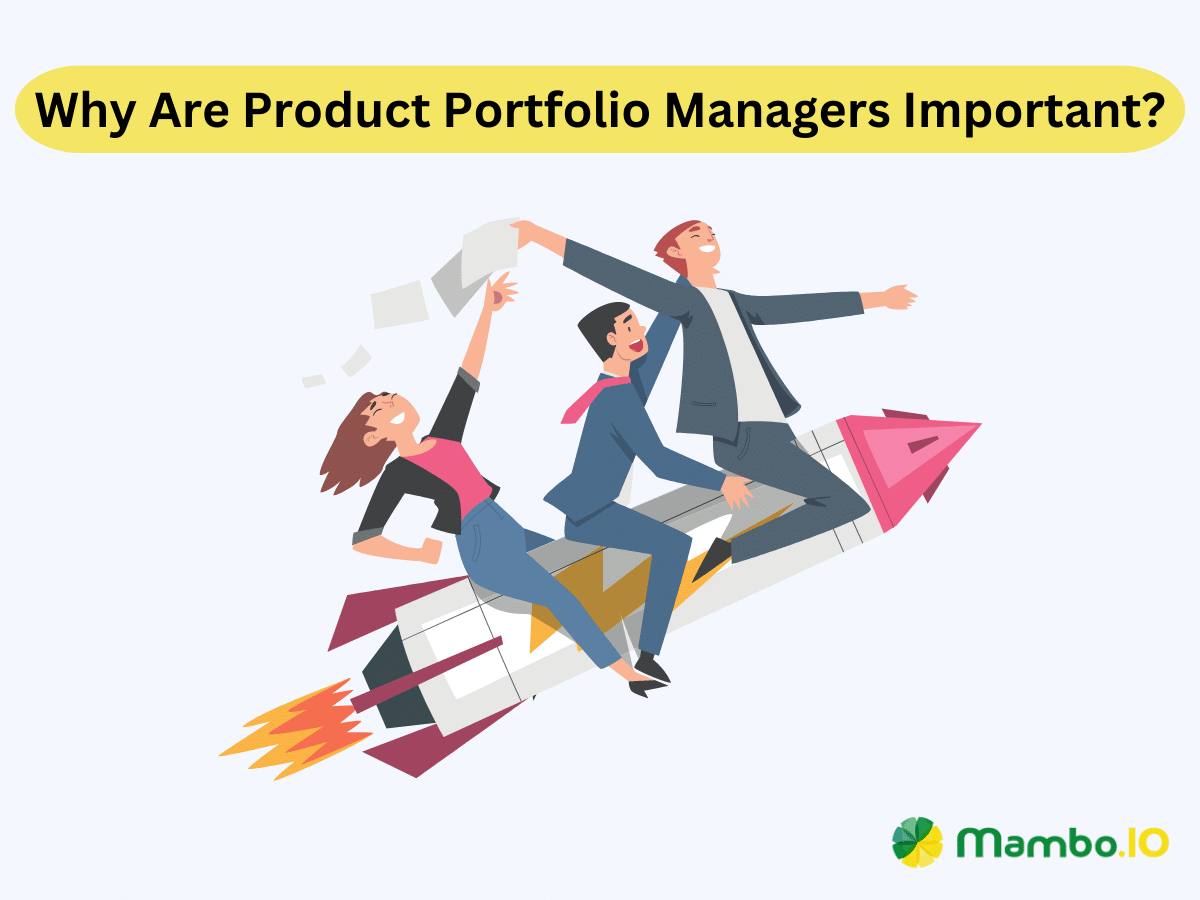
Product portfolio managers are essential for two simple reasons. They spot the market for opportunities and follow up with actionable battle plans to make the most of it. They can help companies by:
- Ensuring the product is aligned with the company’s strategic objectives
- Allocating resources for maximum returns and minimum wastes
- Developing contingency plans to mitigate risks
- Optimising the portfolio for revenue, profitability, and competitiveness
Why do companies that adopt product portfolio management become successful?
It’s not surprising how large companies with multiple product lines have extremely competent product portfolio managers working for them. With their expertise in product portfolio management, businesses can reap numerous benefits that can make or break any organisation.
Below are some of the benefits of adopting product portfolio management:
- Enhanced strategic focus
- Improved resource allocation
- Better risk management
- Increased innovation
- Optimised customer experience
- Improved decision making
- Sharper competitive edge
What type of companies hire product portfolio managers?
Any organisation that adopts a portfolio approach can hire these professionals, regardless of the number of their product lines. However, it’s more common for scaling companies to hire these professionals.
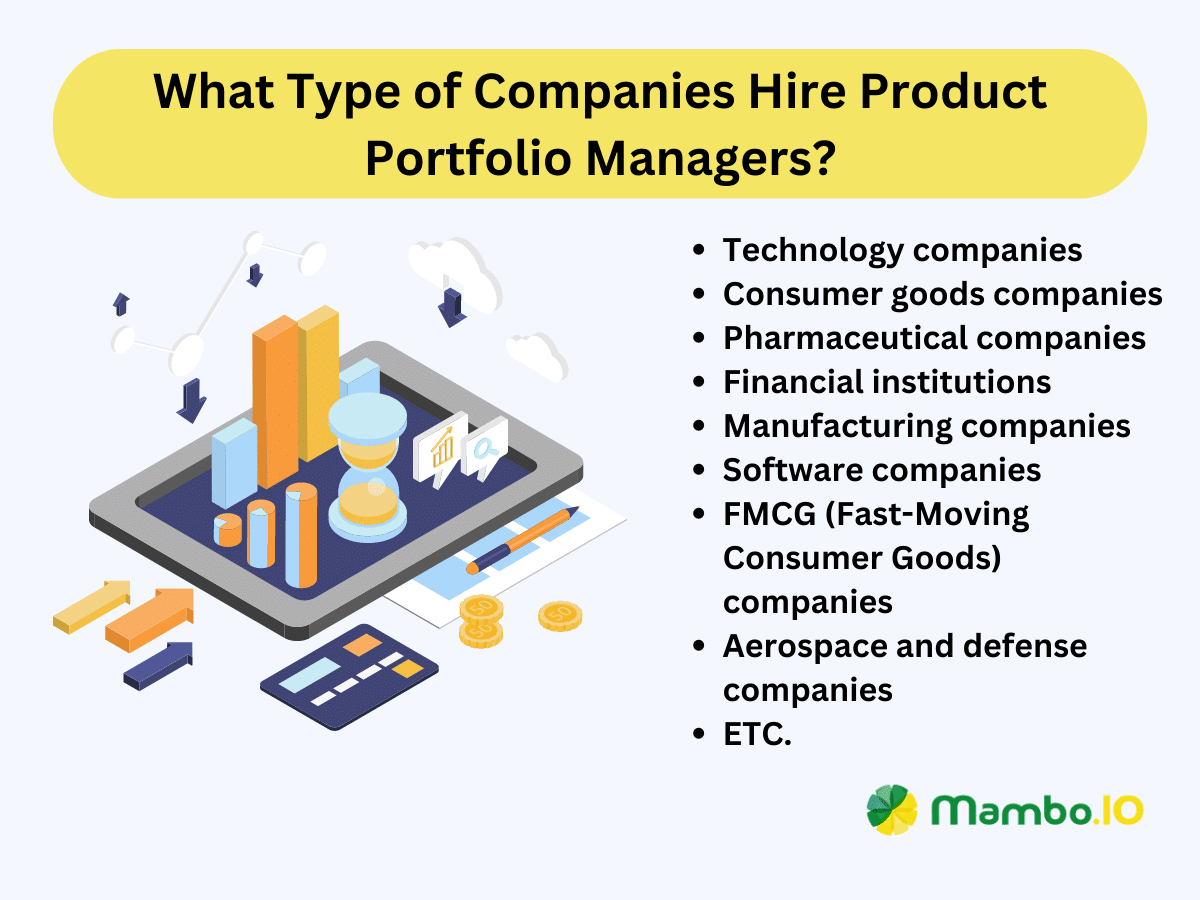
They need portfolio-minded leaders to take the wheel and lead the product toward market success. This is where their expertise shines bright: they fit product portfolio management and use it to accelerate business outcomes.
Final thoughts
Product portfolio managers are the rare gems many companies compete against to acquire. They do a lot of heavy lifting to ensure every product under their portfolio remains desirable and profitable. This is one of the primary reasons why they’re sought-after by many big organisations. With their help, they can easily manage and direct multiple products toward market success.
Our team here at Mambo.io believes in empowering not just product portfolio managers but also product managers. Because of this, we continuously provide golden nuggets of information about everything there is to know about product management. Check out our blogs to learn more valuable insights about product management!
Download your free
“Gamification Guide”
Get your PDF now and start transforming your approach to digital engagement!
Latest Posts
Machine Learning In Finance: 12 Essential Applications
The impact of machine learning on finance is significant. Thanks to this technology, financial institutions are now equipped to make efficient decisions. Through the analysis of data sets, machine learning […]
How To Create Interactive Compliance Training For Bank Employees
Banking compliance training isn’t just another task. It’s the stage where everything else performs. Banks must navigate a myriad of regulations and laws. After all, this is a trust-driven, high-stakes […]
How Fintech Apps Are Using Gamification To Increase User Engagement
Discover how gamification in fintech is revolutionizing financial engagement, making banking fun & boosting user loyalty.



